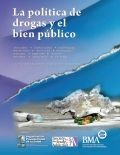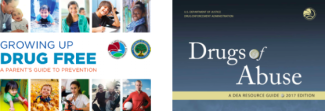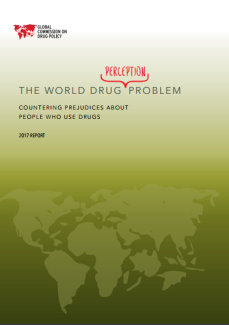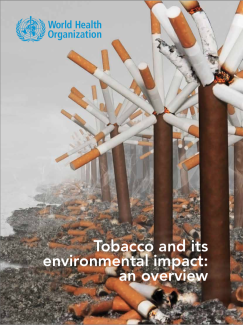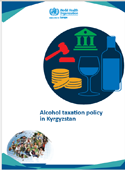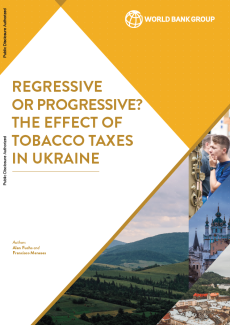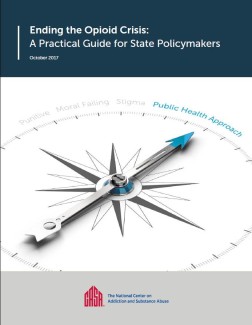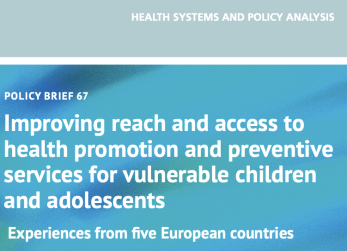
Hledat
Price Elasticity of Demand for Cigarettes and Alcohol in Ecuador
ABSTRACT
Objective: Estimate price elasticity of demand for cigarettes and alcohol in Ecuador using cross-sectional data from the National Survey of Urban and Rural Household Income and Expenditures (ENIGHUR, Spanish acronym) 2011-2012.
M...
Protidrogová politika a veřejné blaho
Užívání drog má významný dopad na veřejné zdraví prostřednictvím nemocí, zdravotního postižení a sociálních problémů a osoby s rozhodovací pravomocí se stále více zajímají o rozvoj protidrogových politik založených na důkazech. Je nezbytné...
Generating Revenue by Raising Tobacco Taxes in Latin America and the Caribbean
Abstract
Objective: The objective of this study was to determine if raising tobacco taxes in the Latin America and Caribbean (LAC) region will generate extra tax revenue, even at outer edges of the sensitivity analysis, with relatively...
Nejčtenější články o sdílení znalostí roku 2017
Světový problém vnímání drog: Boj proti předsudkům o lidech, kteří užívají drogy
Tato nová zpráva se zaměřuje na to, jak současné vnímání drog a lidí, kteří je užívají, vedlo k nerealistickému a stigmatizujícímu, spíše než pragmatickému a na důkazech založenému přístupu k protidrogové politice.
Cílem zprávy je...
Efektivita Bank Hot Téma: Měření škod souvisejících s alkoholem: politika a věda
Na vnitrostátní úrovni jsou škody související s alkoholem, a zejména čisté náklady na škody versus přínosy, kluzké pojmy. Tvárnost a politický význam dohromady činí odhady sporným územím, které ospravedlňují snížené daně z alkoholu na...
Agenda Nacional de Investigación para la Lucha contra las Drogas 2016-2021
La Agenda Nacional de Investigación para la Lucha contra las Drogas 2016 - 2021 define líneas estratégicas y temáticas prioritarias de investigación que abarquen los diferentes aspectos y complejidades de la problemática de las drogas en el...
Tobacco and Its Environmental Impact: An Overview
Overview
This overview assembles existing evidence on the ways in which tobacco affects human well-being from an environmental perspective – i.e. the indirect social and economic damage caused by the cultivation, production, distribution...
Regulace marketingu alkoholu: Od výzkumu k veřejné politice
Úvod
Marketing, propagace a sponzorství alkoholu jsou dnes rozšířené ve většině světa. Marketing alkoholu se neustále vyvíjí a využívá mnoho kanálů, včetně rádia, televize, sportovních akcí a koncertů populární hudby zaměřených na mládež...
"Effects of Drugs on Socio-Economic Conditions of Union Council Shoghore District Chitral, Pakistan"
Summary, Conclusion and Recommendations
Drug addiction is a pathological or abnormal condition which arises due to frequent or abnormal use of substances which affects human senses and decreased...
Alcohol Taxation Policy in Kyrgyzstan (2017)
Increasing the price of alcohol is one of the most effective policy measures to reduce overall consumption in a country, and hence to reduce the level of alcohol-related harm. Taxation is a common way to control the price of alcoholic...
Measuring Improvement in Knowledge of Drug Policy Reforms Following a Police Education Program in Tijuana, Mexico
Abstract
Background
Mexico’s 2009 “narcomenudeo reform” decriminalized small amounts of drugs, shifting some drug law enforcement to the states and mandating drug treatment diversion instead of incarceration. Data from Tijuana suggested...
The President's Commission on Combating Drug Addiction and the Opioid Crisis
The Drug Addiction and Opioid Crisis
The primary goal of the President’s Commission on Combating Drug Addiction and the Opioid Crisis is to develop an effective set of recommendations for the President to combat the opioid crisis and drug...
ISSUP Takes Part in the African Union Continental Consultation on Drug Demand Reduction
The African Union Continental Consultation on Drug Demand Reduction organised by the African Union took place in Tunisia from 1-3 November. ISSUP was invited to attend and contribute to the meeting through Jeff Lee, ISSUP’s Senior...
How Can We Demonstrate the Public Value of Evidence-Based Policy Making when Government Ministers Declare that the People ‘Have Had Enough of Experts’?
Abstract
Recent political campaigns on both sides of the Atlantic have led some to argue that we live in the age of ‘post-factual’ or ‘post-truth’ politics, suggesting evidence has a limited role in debate and public policy. How can we...
Tobacco Industry Strategies Undermine Government Tax Policy: Evidence from Commercial Data
Abstract
Objective: Taxation equitably reduces smoking, the leading cause of health inequalities. The tobacco industry (TI) can, however, undermine the public health gains realised from tobacco taxation through its pricing strategies. This...
Hotel Smoking Policies and Their Implementation
Abstract
Background
Most states in the U.S. permit hotels to allow smoking in some guest rooms, and only five (Indiana, Michigan, North Dakota, Vermont, and Wisconsin) require that all hotel and motel rooms be 100% smoke-free (State and...
Delinquency and Substance Misuse Among US Teens See Significant Decline
12- to 17-year-olds in the US are now far less likely to misuse alcohol, nicotine and illegal drugs. The same age group is also less prone to delinquent behaviours, such as stealing and fighting than the generation before. This is according...
Regressive or Progressive? The Effect of Tobacco Taxes in Ukraine
ABSTRACT
Tobacco taxes are usually considered regressive as the poorest individuals allocate larger shares of their budget towards the purchase of tobacco related products. However, because these taxes also discourage tobacco use, some of...
Ending the Opioid Crisis: A Practical Guide for State Policymakers
BACKGROUND
Although the opioid epidemic is a national issue, states shoulder the majority of the financial and social burden caused by addiction. Fortunately, there are many actions that states can take to effectively address the opioid...
Share the Knowledge: ISSUP members can post in the Knowledge Share – Sign in or become a member



